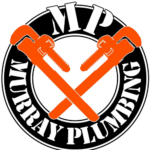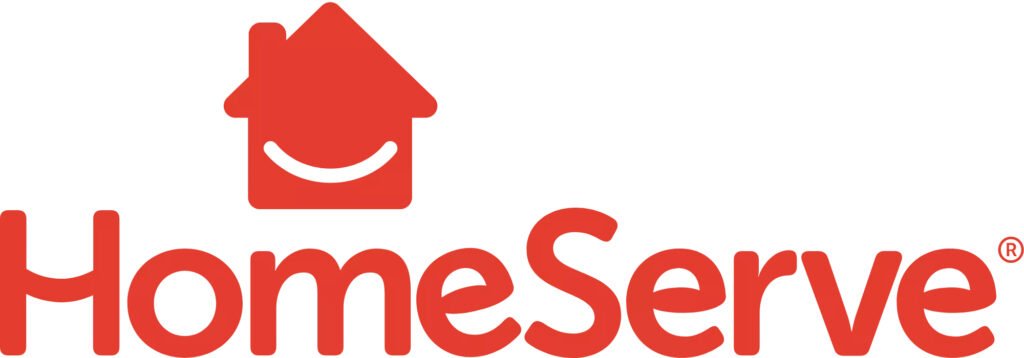Harrisburg, PA: A Clear and Simple City Guide
Harrisburg, located in the heart of the Susquehanna Valley, offers an array of family activities and vibrant city life that appeal to both residents and visitors alike. With the annual Pennsylvania Farm Show being the largest indoor agriculture exposition in the U.S., it showcases the rich agricultural heritage of Cumberland County and beyond. History enthusiasts can explore the state capitol, while those seeking a scenic getaway can stroll along the riverfront or enjoy a cruise on the Susquehanna River. For nightlife, midtown Harrisburg features a variety of craft breweries and entertainment options. The Harrisburg region is well-connected, with Harrisburg International Airport (HIA) providing convenient access to major airlines like United Airlines and Allegiant Air. As we approach 2025, the city continues to grow, offering opportunities to live in charming neighborhoods such as Camp Hill, Hummelstown, and Steelton, making it an ideal spot for commuters from nearby Lebanon and Hanover.
Harrisburg is the capital of Pennsylvania. It is located on the east bank of the Susquehanna River. The city is part of Dauphin County and serves as a central hub for government, business, and transportation in the region. Nearby communities benefit from services like plumbing maintenance in Enola PA, supporting residential and commercial property needs.
This article provides a direct and structured overview of Harrisburg. It includes information about geography, population, housing, economy, education, transportation, healthcare, services, recreation, and local attractions.
Location and Geography
Harrisburg sits in south-central Pennsylvania. The city is positioned along the Susquehanna River, with major highways surrounding it.
Key nearby routes:
-
Interstate 81
-
Interstate 83
-
U.S. Route 22
-
U.S. Route 322
-
Pennsylvania Turnpike (Interstate 76)
These roads connect Harrisburg to Carlisle, Hershey, Lancaster, York, and Philadelphia.
Population
Harrisburg has a population of about 50,000 residents. It is part of a larger metropolitan area that includes over 570,000 people.
The city includes a mix of families, students, professionals, and retirees. It is also home to many state workers and business employees. The population is diverse in age, culture, and background.
Housing
Harrisburg offers various types of housing. Options include single-family homes, townhouses, duplexes, and apartments.
Key facts:
-
The average home value is around $165,000
-
The average rent is about $1,100 per month
-
Some neighborhoods have historic homes
-
Newer developments are located on the outskirts
Downtown apartments offer access to restaurants and public services. Suburban neighborhoods offer quiet streets and larger yards.
Local Economy
Harrisburg has a mixed economy. It includes state government, healthcare, logistics, education, and finance.
Major employers in Harrisburg:
-
Commonwealth of Pennsylvania
-
UPMC Pinnacle
-
Penn State Health
-
The Hershey Company (nearby)
-
TE Connectivity
-
Giant Food Stores (corporate offices)
The city also includes small businesses, retail shops, and restaurants. The job market is steady, and the cost of living is lower than many other capital cities.
Education
Harrisburg is served by the Harrisburg School District. It also includes private and charter school options.
Public schools in the area:
-
Harrisburg High School
-
Rowland Academy
-
Downey Elementary School
-
Camp Curtin Academy
Private and charter schools nearby:
-
Nativity School of Harrisburg
-
Premier Arts and Science Charter School
-
The Circle School
Colleges and universities:
-
Harrisburg University of Science and Technology
-
Penn State Harrisburg (in nearby Middletown)
-
Harrisburg Area Community College (HACC)
These schools support programs in business, healthcare, technology, and liberal arts.
Healthcare
Harrisburg provides access to hospitals, urgent care centers, and specialist clinics. Residents have options for both general and advanced care.
Main healthcare providers:
-
UPMC Harrisburg
-
Penn State Health Holy Spirit
-
Hamilton Health Center
-
Patient First Urgent Care
-
Private practices across the city
Pharmacies, dental clinics, and mental health services are also available throughout Harrisburg.
Public Services
The City of Harrisburg provides local services that support residents and businesses. For business owners, access to a commercial plumber Lemoyne ensures nearby plumbing support for commercial properties.
City services include:
-
Trash and recycling pickup
-
Street cleaning and repairs
-
Zoning and permits
-
Police and fire protection
-
Snow removal
-
Water and sewer management
The Harrisburg Bureau of Police and Harrisburg Bureau of Fire manage safety and emergency response. The city also offers building inspections, community outreach, and housing support.
Transportation
Harrisburg is a central transportation hub for the region. It supports car travel, public transit, train travel, and air travel.
Main transportation options:
-
Capital Area Transit (CAT) – Local bus service
-
Amtrak – Train service to Philadelphia, New York, and Pittsburgh
-
Greyhound and Megabus – Regional bus service
-
Harrisburg International Airport (MDT) – Located in Middletown, about 10 miles away
-
Uber, Lyft, and taxi services – Available throughout the city
Downtown Harrisburg has walkable streets and bike-friendly routes. Parking garages and lots are located near public buildings and businesses.
Parks and Recreation
Harrisburg maintains several parks and public spaces. These areas support walking, sports, picnics, and events.
Major parks:
-
Riverfront Park – Along the Susquehanna River, includes walking paths, green space, and sculptures
-
City Island – Features a ballpark, miniature golf, and picnic areas
-
Reservoir Park – Offers trails, playgrounds, and views of the city
-
Italian Lake Park – A peaceful park with a pond and walking paths
The Department of Parks and Recreation provides activities for kids, adults, and seniors. These include summer camps, fitness classes, and seasonal events.
Shopping and Dining
Harrisburg offers a range of shopping and dining options. Downtown features local shops and restaurants. Larger stores are located near malls and shopping centers.
Popular shopping areas:
-
Strawberry Square (downtown)
-
Harrisburg Mall
-
Colonial Park Mall
-
Paxton Towne Centre
Dining options:
-
The Millworks – Farm-to-table restaurant and brewery
-
Mangia Qui – Italian food and wine
-
Cork & Fork – Pizza and small plates
-
Los Tres Cubanos – Cuban food near the river
-
Jackson House – Popular burger and sandwich spot
Food trucks and small cafes also operate throughout the city.
Events and Attractions
Harrisburg hosts regular events and festivals. These bring residents and visitors together for food, art, culture, and fun.
Annual events:
-
Kipona Festival – Held each Labor Day, includes music, food, and river activities
-
Artsfest – A fine arts festival held in May
-
Ice & Fire Festival – Winter event with sculptures and fire shows
-
Harrisburg Holiday Parade – December parade through downtown
Attractions:
-
The State Capitol Building – Open for public tours
-
The National Civil War Museum – Exhibits about the war and local history
-
Whitaker Center for Science and the Arts – Science exhibits, theater, and live performances
-
Broad Street Market – One of the oldest farmers markets in the country
-
Fort Hunter Mansion and Park – A historic site along the river
The city also has several art galleries, theaters, and live music venues.
Neighborhoods
Harrisburg includes several distinct neighborhoods. Each area offers different types of housing, services, and settings.
Popular neighborhoods:
-
Downtown – Business area with apartments, offices, and public buildings
-
Midtown – Known for shops, restaurants, and historic homes
-
Allison Hill – A residential area with schools and parks
-
Uptown – Quiet streets with larger homes and nearby trails
-
Shipoke – A small riverside neighborhood with restored homes and river views
Each area supports daily living with schools, groceries, public transit, and green spaces.
Summary
Harrisburg, PA, is a mid-sized city with direct access to government, healthcare, and education. It serves as a central point for travel and business in south-central Pennsylvania.
The city supports families, students, and professionals with affordable housing, public services, and community events. Local schools, hospitals, and shops help meet daily needs. Parks, museums, and festivals offer entertainment and recreation.
Harrisburg continues to grow while providing a simple and steady environment for residents and visitors.



